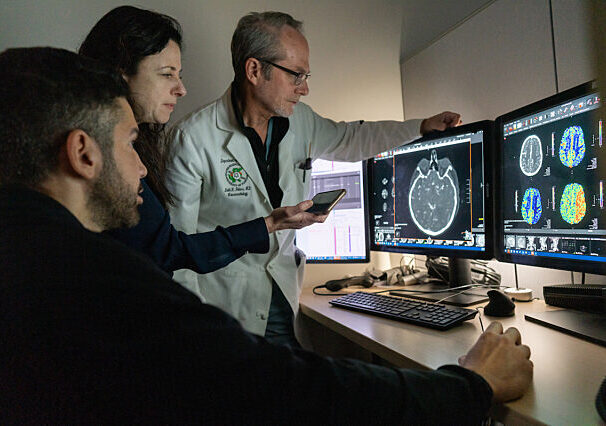HealthProviders DB is a comprehensive database of healthcare providers, including a complete directory of all Vascular Neurology Physicians.
Psychiatry & Neurology Healthcare Taxonomy Code 2084V0102X
As of today, the following are the total number of Vascular Neurology Physicians nationally, in your State, and near your location.
Select a State below to view the list by State. Additionally, you can narrow the list by city, among other options, from the Filter Panel, which you can open by clicking the vertical ellipses ⋮ in the upper right corner of the app.
Alaska – Alabama – Armed Forces Pacific – Arkansas – American Samoa – Arizona – California – Colorado – Connecticut – District of Columbia – Delaware – Florida – Federated States of Micronesia – Georgia – Guam – Hawaii – Iowa – Idaho – Illinois – Indiana – Kansas – Kentucky – Louisiana – Massachusetts – Maryland – Maine – Marshall Islands – Michigan – Minnesota – Missouri – Northern Mariana Islands – Mississippi – Montana – North Carolina – North Dakota – Nebraska – New Hampshire – New Jersey – New Mexico – Nevada – New York – Ohio – Oklahoma – Oregon – Pennsylvania – Puerto Rico – Palau – Rhode Island – South Carolina – South Dakota – Tennessee – Texas – Utah – Virginia – Virgin Islands – Vermont – Washington – Wisconsin – West Virginia – Wyoming
Medicare
The following are the total number of Vascular Neurology Physicians who accept Medicare in your State, the number who have opted out of Medicare, and the total number excluded from participation in Medicare nationwide.
The diagram below shows all the Vascular Neurology Physicians across the country, represented by blue bubbles. The larger the bubble, the greater the concentration of providers in that area. Red bubbles represent Medicare-excluded providers, with the larger bubbles indicating a higher percentage of excluded providers in that region. You can change the bubble size to be based on exclusions from the Size menu.
What do Vascular Neurology Physicians do?
Vascular neurologists diagnose and treat disorders of the brain’s blood vessels, such as strokes, brain aneurysms, and cerebrovascular malformations.
They manage acute stroke care, analyze blood flow using tools such as CT and MRI scans, and educate patients on managing risk factors for these conditions.
While they do not perform surgery, they collaborate with surgeons and other specialists to provide comprehensive care and manage long-term conditions.
What they do
Provide patient education: They offer guidance on managing cerebrovascular diseases and help patients find relevant clinical trials or new therapies.
Diagnose and treat conditions: They specialize in cerebrovascular diseases that affect the blood supply to the brain and spinal cord.
Manage stroke care: They are often referred to as “stroke doctors” because they specialize in the management of acute strokes.
Utilize diagnostic tools: Imaging tests, such as CT scans, MRIs, and angiograms, are used to analyze blood flow to the brain and identify blockages or abnormalities.
Manage risk factors: These factors help patients understand and manage stroke risks, such as genetic conditions, heart conditions, and other vascular abnormalities.
Collaborate with other specialists: They work with neurosurgeons or vascular surgeons for surgical procedures and coordinate care with other rehabilitation and primary care providers.

